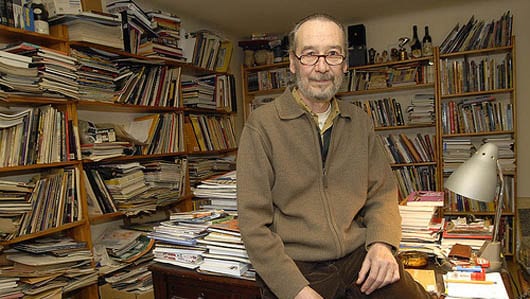
Sad news that has jumped to the present throughout this morning. One of the best known publishers in the world of national comics as Josep Maria Berenguer passed away yesterday. Without a doubt, his name will remain forever in the memory of those of my generation, for having been the founder of the magazine The Viper, what good times it has given us, and that it has left a pool of authors as wide as it is good. In addition, his work in the editorial direction of La Cúpula has made it possible to carry out risky works that not many others would have accepted. Hence the scriptwriter Hernán Migoya, who agreed with him for eight years, called him «the great publisher of underground comics in Spain«. In the same way as other websites, I would like to embellish this article with the statements that Berenguer made a couple of years ago about the birth of El Víbora:
I started by chance. Because I was unemployed at that time, in '79. I am going to tell you about my case ... I live outside of Barcelona, it is not even a small town, it is like an urbanization near San Cugat del Vallès, in the mountains behind from Barcelona, between pine and holm oak forests and such. A very nice site. I lived there. I had painted all my life, but at that moment I was like in crisis. At the same time, together with some neighbors, he was making a protest magazine for the neighborhood –the neighborhood is La Floresta– and it was called The Enterao. Fanzine type, but it was vindictive, it was a neighborhood association thing, with a left-wing political air. Several people collaborated, several friends from the neighborhood, and one of them was Joseph Toutain, who was a comic book editor. I had always dedicated myself to illustration and painting and photography. To earn a living I had taken school photos, the kind of all the children in the class, and then sold a copy to each family ... this kind of thing. And then I told Toutain, with whom we did The Enterao, that I would like to make a magazine, basically, of visual arts. Of the things that interested me, painting, illustration, photography ... Toutain was a comic editor, he made a magazine called 1984, another called Creepy… He did four or five magazines in the 70s. Then he said to me, "Look, it's a good time, it seems that the market is open to this kind of thing, if you look for authors you can open a comic magazine" . And since I had traveled to the United States, I had moved, I had lived in Paris and had a certain taste for comics, I began to gather material from people. In Barcelona I met Nazario, [Miguel] Gallardo y [Juanito] Mediavilla, Max... and I met people from The roll. And we started having meetings in La Floresta, in a beach bar called La Casa Blava, which no longer exists, where they made some really good paellas. And we spent days there eating paella and arguing, talking about who would make a character, who would do politics, who would do ... I don't know, Nazario with the transvestites of the Ramblas, Gallardo and Mediavilla with the criminals of the peripheral neighborhoods, Max with his fight against multinationals, [Alfredo] Pons speaking of wayward youth and whores ... Anyway, what we tried to do as a sampling of what was happening in the society of our time. And that's where I started with The Viper, thanks to Toutain, who gave me the money on the one hand, to make the first issue, which cost 800.000 pesetas, and on the other hand the know-how, knowing how. In other words, where to buy the paper, the printing press, the binder, the kiosk distributor, and so on. In other words, it was by chance, because I was unemployed.
Source: comics.